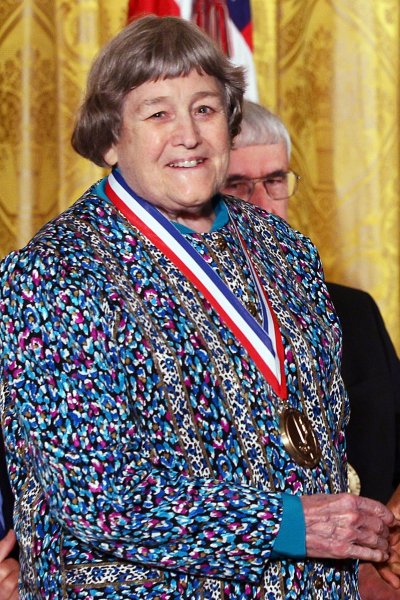Yvonne Brill (Yvonne Madeline Claeys)

Yvonne Brill was born in Winnipeg, Manitoba. Her parents were immigrants from Belgium. She attended the University of Manitoba, but was barred from studying engineering because of her gender, so she studied chemistry and mathematics. Brill’s work in satellite propulsion systems resulted in a number of significant developments. She developed the concept for a new rocket engine, the hydrazine resistojet, and she proposed the use of a single propellant because of the value and simplicity that it would provide. Her invention resulted in not only higher engine performance but also increased reliability of the propulsion system. Due to the reduction this created in propellant weight requirements this resulted in either increased payload capability or extended mission life. As a result of her innovative concepts for satellite propulsion systems and her breakthrough engineering solutions, Brill earned an international reputation as a pioneer in space exploration and utilization. Brill invented the hydrazine resistojet propulsion system in 1967 for which she holds U.S. Patent No. 3,807,657. Her invention became a standard in the industry, and has translated into millions of dollars of increased revenue for commercial communications satellite owners. Brill contributed to the propulsion systems of TIROS, the first weather satellite; Nova, a series of rocket designs that were used in American moon missions; Explorer 32, the first upper-atmosphere satellite; and the Mars Observer, which in 1992 almost entered a Mars orbit before losing communication with Earth. A longtime resident of the Skillman section of Montgomery Township, New Jersey, Brill died of complications of breast cancer in Princeton, New Jersey. An obituary of Brill published in the March 30, 2013 issue of the New York Times originally began: “She made a mean beef stroganoff, followed her husband from job to job and took eight years off from work to raise three children”. The obituary was heavily criticized for leading with and overemphasizing Brill’s gender and family life, rather than her scientific and career accomplishments, and helped to inspire the Finkbeiner test for scientific journalism. The Times later dropped the reference to her cooking and changed the lead of the article.
Born
- December, 30, 1924
- Canada
- Winnipeg, Manitoba
Died
- March, 27, 2013
- USA
- Princeton, New Jersey
Other
- Cremated

